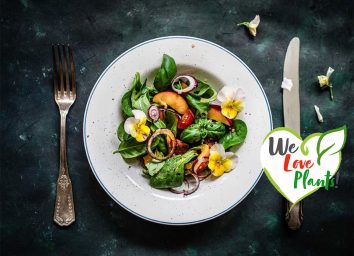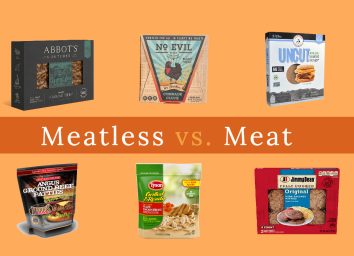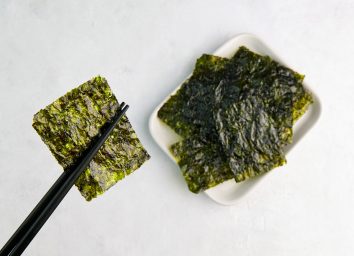6 Reasons You Should Stop Eating Meat Right Now
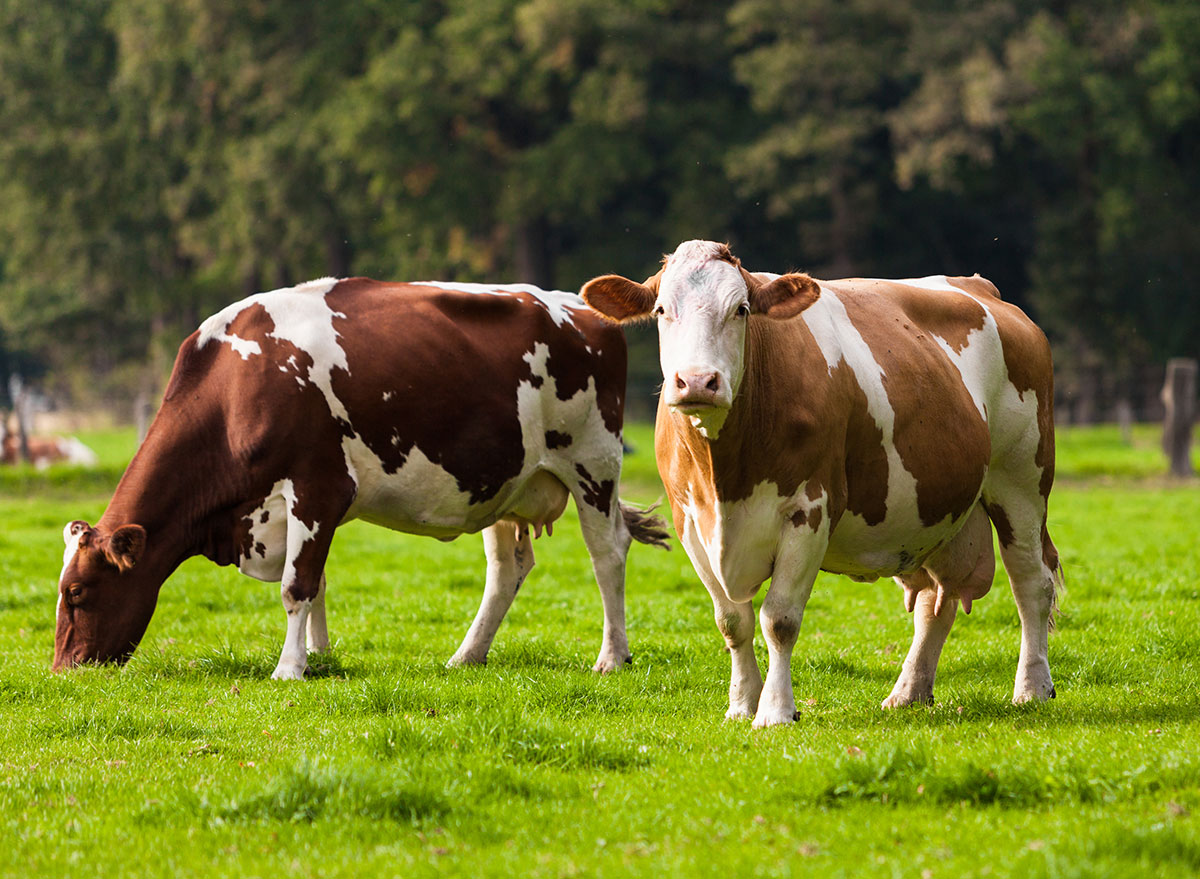
Meat is synonymous with “good food” for many of us. In fact, 2018 was a record year for meat consumption per capita in the United States, increasing from 216.9 pounds in 2017 to 222.2 pounds. However, we can no longer deny the devastating effects of animal agriculture on our planet, our health, and the wellbeing of animals. With the meat shortages brought on by the coronavirus pandemic, this is as good a time as any to reconsider how much meat we really need in our diets. Even a small reduction in our meat consumption, like going meatless once a week, could have major positive effects on these issues. Here are some of the most important reasons to stop eating meat. Sign up for our newsletter to get the latest food news delivered straight to your inbox.
The meat industry is the biggest contributor to global warming

The meat industry is now widely recognized as the number one contributor to global warming, and also the leading cause of deforestation and air and water pollution. Cows, for example, produce greenhouse gases at alarming rates, outranking most countries in total amount of emissions. A study from 2017 found that if every American swapped out all the beef they consume for beans, that alone would get the United States halfway to meeting the Paris climate agreement goals in 2020 (which we have since pulled out of). There is really no way to wage a successful battle against global warming while we’re still farming animals for meat on a large scale. If you’re wondering how you can contribute to protecting our planet from utter destruction, eating a plant-based diet is the best way to make a difference fast. Thinking of going vegan for the cause? Here’s a simple beginner’s guide to help you make a decision that’s right for you.
Animal cruelty doesn’t need to be a part of our world
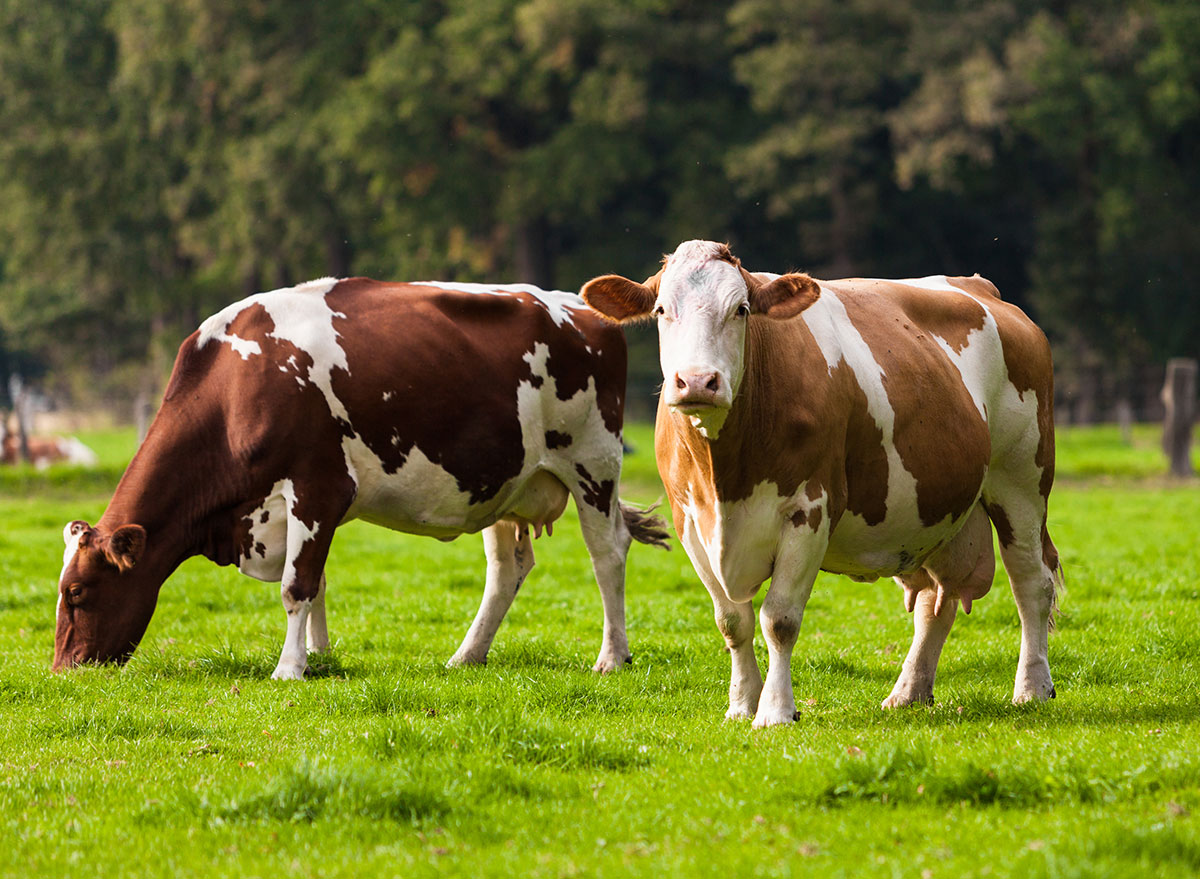
As much as we’d like to believe that humane practices are part of the meat industry, there is really no such thing as avoiding torture and suffering when animals are treated as a commodity instead of living beings. In the vast majority of cases, animals raised for slaughter live in deplorable conditions, often riddled with diseases and with very restricted movement in their cages. Chickens and turkeys are genetically modified so their breasts yield bigger cuts of meat which causes them to barely be able to stand even if they were able to roam free. Cows are actually incredibly gentle mothers, who suffer tremendously when their calfs are taken from them before weaning. This unnecessary suffering happens because we’re not willing to reduce our meat consumption. Next time you hug your pet or laugh at a viral animal friendship video, ask yourself why you’re still eating animals.
Plant-based meats are more appetizing and widely available than ever
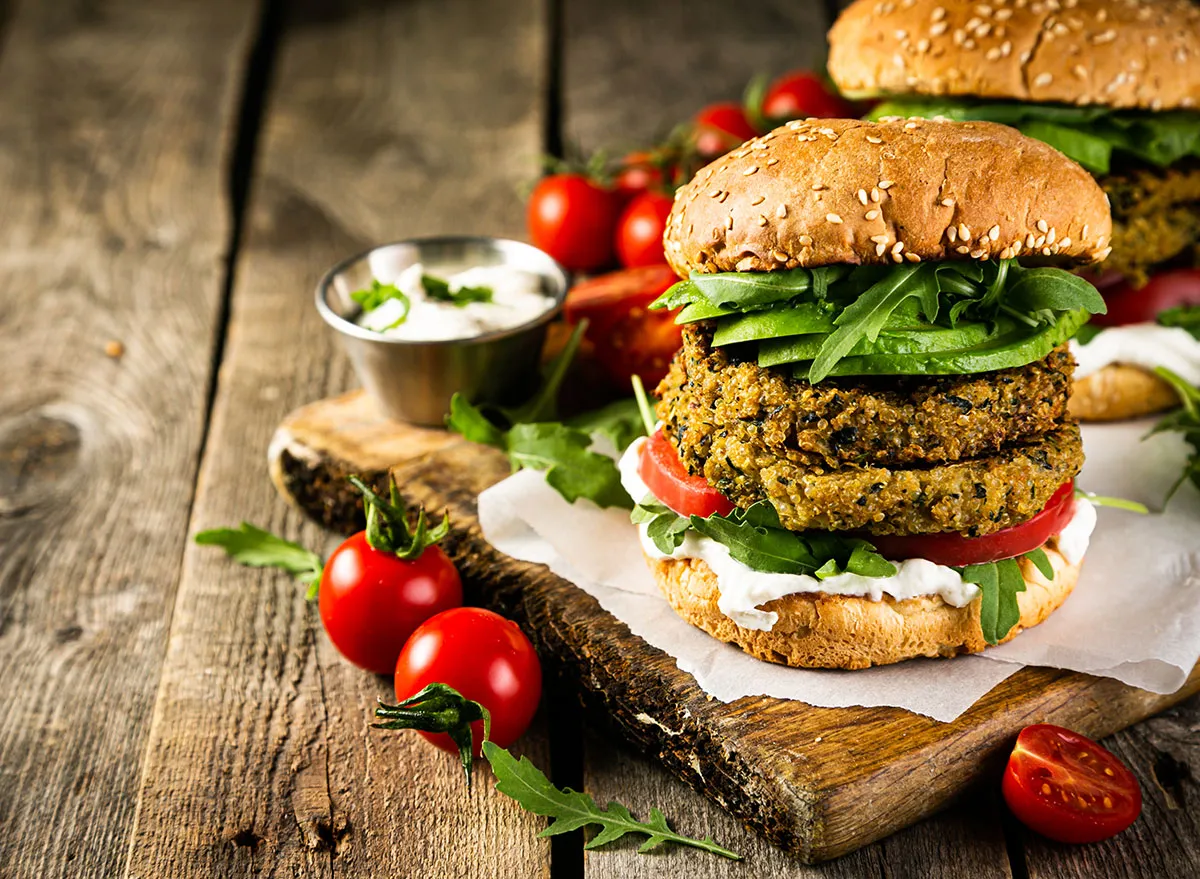
The consumption and popularity of plant-based “meats” like Beyond Burger and Impossible Burger have skyrocketed in a very short amount of time. And no wonder—these meat alternatives are far from unappealing tofu cubes or dry veggie burgers of yesteryear. You can now avoid meat while retaining the same gluttonous satisfaction of biting into a juicy burger (as well as sausages and other things). And it’ll taste all the better knowing that you’re doing something good for the planet while you enjoy your dinner. If you’re new to the world of plant-based meat, here’s how to choose between Beyond and Impossible Burger.
A plant-based diet is better for your health
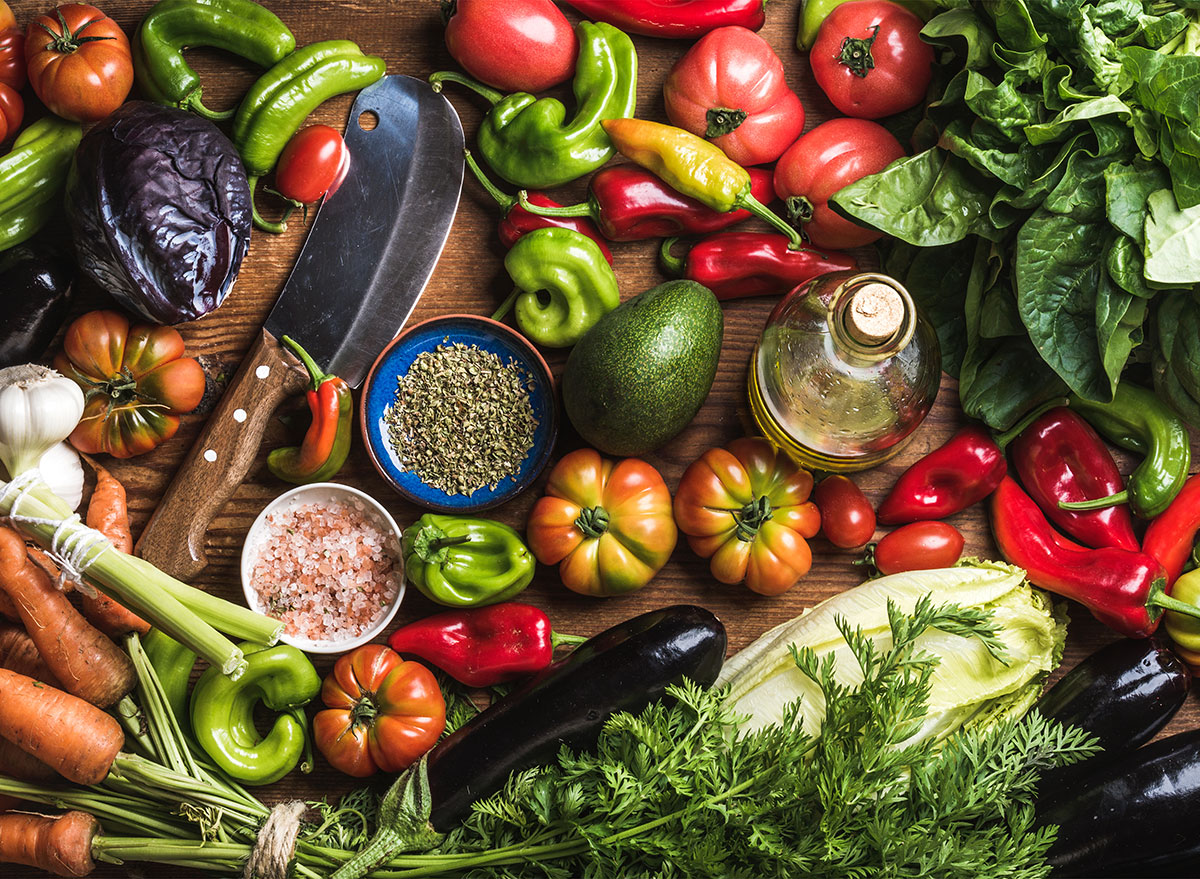
We keep resisting giving up meat as if it’s good for us. We’ve already written about all the good things that happen to your body when you stop eating meat, but here’s the gist—going meatless will help you lose weight, lower your cholesterol, improve your digestion, have better skin, and avoid diseases like certain cancers. And don’t worry about missing out on the protein, there are plenty of plant-based sources of protein that are just as good if not better than meat. Here’s exactly how a plant-based diet can protect you from disease.
Workers at slaughterhouses need better protection
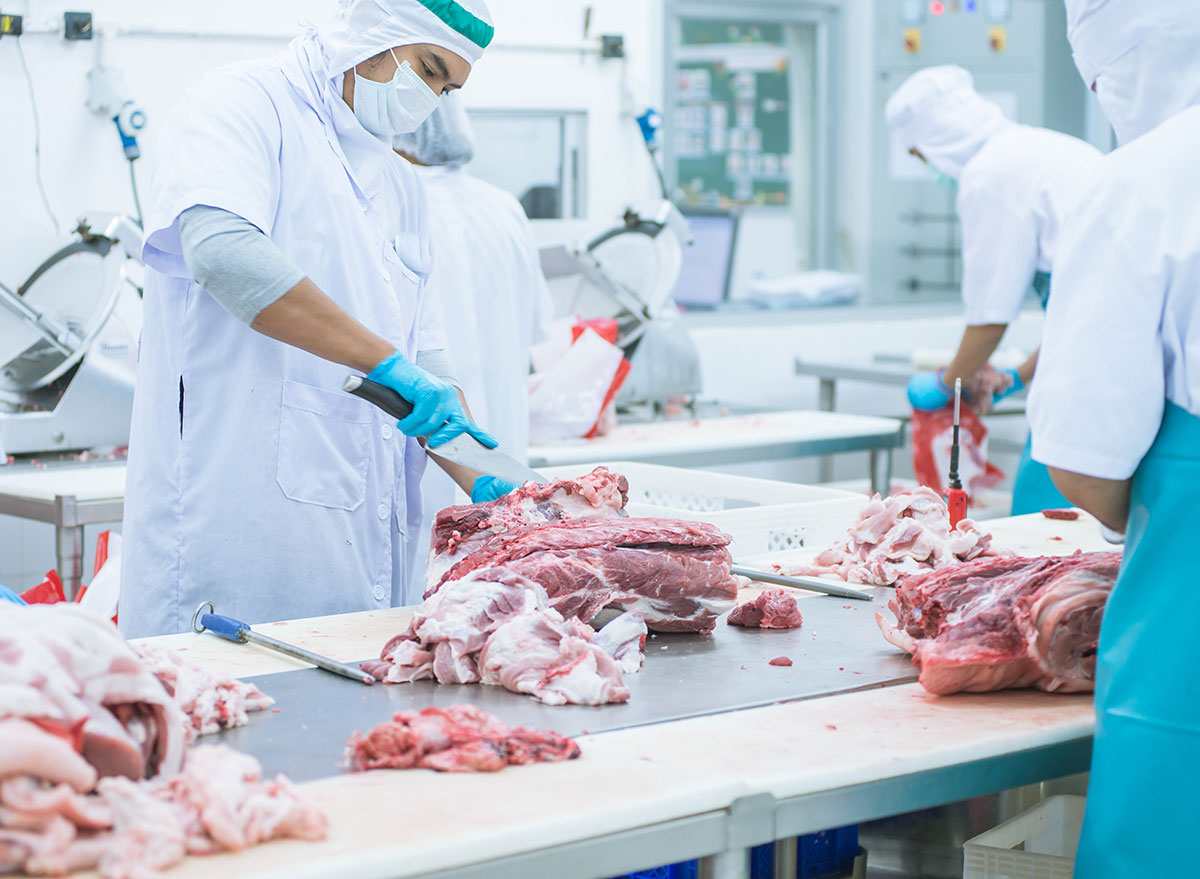
As slaughterhouses were ordered to remain open during the pandemic, many lives of low-wage workers employed there were put in danger. In fact, some counties identified as outbreak hotspots were places where slaughterhouse workers had fallen ill with COVID-19. Eating less meat would mean less pressure on keeping these businesses open during such perilous times.
Our cruel treatment of animals leads to novel viruses like coronavirus
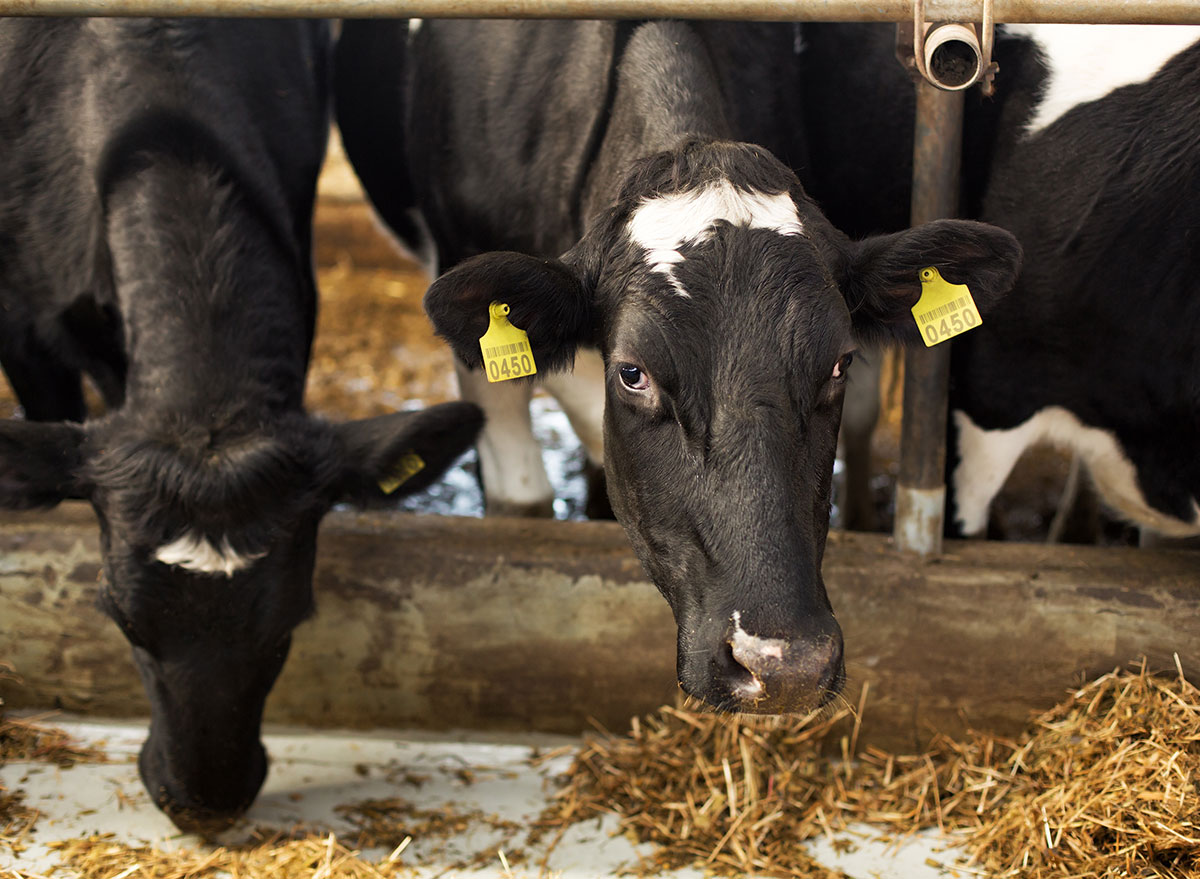
Coronavirus (and a few other notorious viruses like SARS and bird flu) originated in wet markets, where many animals are traded and slaughtered for food. When animals are kept in such cramped conditions and subsequently slaughtered in close proximity to other animals and humans, the chances of a virus crossing from one species to another are very real.
